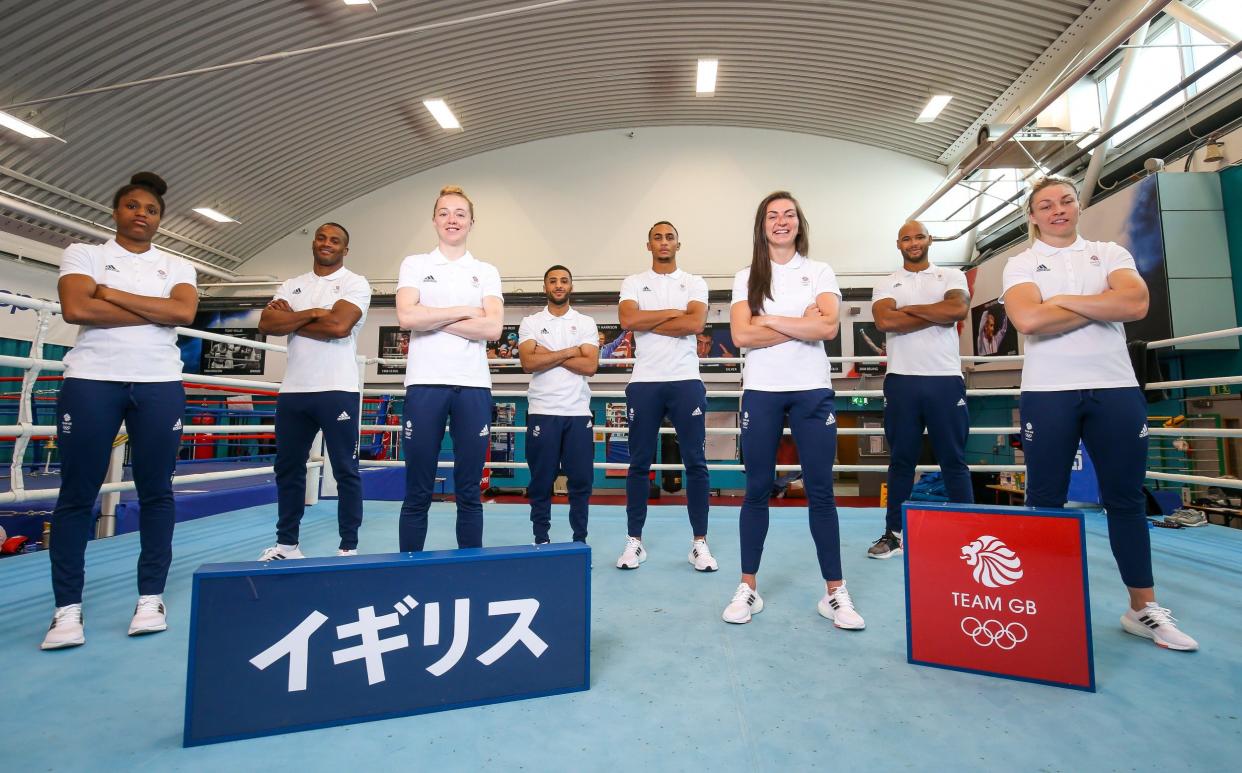How British boxing became an Olympic talent factory

If British Olympic chiefs are bullish about their team's medal chances in Tokyo this summer, one of the reasons why can be found on an unprepossessing industrial estate in Sheffield.
The English Institute of Sport is sandwiched between the Don Valley Bowl and Sheffield Arena, just off the A6178, but what it may lack in glamour, it more than makes up for in a track record which has made it one of the most formidable talent factories in the world of amateur boxing.
Team GB includes 11 boxers this year - four women, seven men - and it is no exaggeration to claim that they have the potential to be the most successful team ever at an Olympic Games. London nine years ago set the record with three gold medals (including one for the young Anthony Joshua), a silver and a bronze, and this team has the ability to match them, if not better it.
The fighters are talented individuals with the raw materials to be stars, but it is the EIS - led by head coach Rob McCracken - which has honed their skills, something it has been doing ever since it was set up in 2008.
National Lottery funding - the EIS received £15million over the last four year-cycle - has helped. Boxers are supported by an army of nutritionists and psychologists, and analysts who have access to a vast video database of material to help them prepare.
Fighters can sit down at an analysis station with a widescreen television which the coaches can call up at any time to break down video footage of sparring or, as one of the coaches Paul Walmsley points out, watch "a video breakdown on literally any opponent in the world".

A team of sports scientists constantly develop physiology and performance analysis data to give every fighter an insight into how their bodies respond to training and competition, how to avoid injuries and their mental focus under pressure.
McCracken has built a support team which benefits the boxers in every department, with altitude training rings and a schedule - at least prior to the Covid-19 pandemic - which has seen the team compete around the world in diverse conditions in an effort to get used to different scenarios.
The walls inside the vast hall - which has four training rings - are adorned with previous medallists at the Games, one of whom - Joshua - still uses the base as part of his training camp for fights and frequently offers advice to the up and coming fighters.
Light-heavyweight Ben Whittaker explains that rubbing shoulders with Joshua, and "the experiences he can offer", are invaluable as the boxers prepare for the most important moment of their careers. Success at the Olympic Games has long been the launch pad for a career in the professional ranks, and interest from the world's biggest promoters, so it is not simply a gold medal that could be on offer in Tokyo.
With the rise in women's professional boxing, there is so much now for the quartet of women representing GB to strive for when their amateur careers are over.
The four women going to Japan includes 2019 middleweight world amateur champion, Lauren Price, youth world and Olympic champion, Caroline Dubois, at lightweight, and world championship bronze medallist Karriss Artingstall in the featherweight division. Mum-of-three Charley Davison, who will box at flyweight, makes up the foursome. All are capable of medals.

All seven men have won at least one major medal in the Tokyo Olympic cycle, while two competed at the Rio 2016 Olympic Games: flyweight Galal Yafai and welterweight Pat McCormack. Along with super-heavyweight Frazer Clarke, the trio also won gold at the 2018 Commonwealth Games.
McCormack, whose twin brother Luke also goes to Tokyo at lightweight, reached the final of the world championships in 2019, taking silver, while featherweight Peter McGrail, also a 2018 Commonwealth champion, won bronze medals at the 2017 and 2019 world amateur championships.
At light-heavyweight is Whittaker, who won silver at the European Games and bronze at the world championships in 2019, with 2017 European championship silver medallist Cheavon Clarke at heavyweight. Clarke, completes the team at super-heavyweight. The 29-year-old, who has been part of the GB Boxing squad for more than 10 years, has been named as captain of the boxing team.
McCracken, GB Boxing’s performance director, said: “This is a very talented group with quite a lot of experience - they have every chance of being successful individually and as a group at the Olympic Games.”
